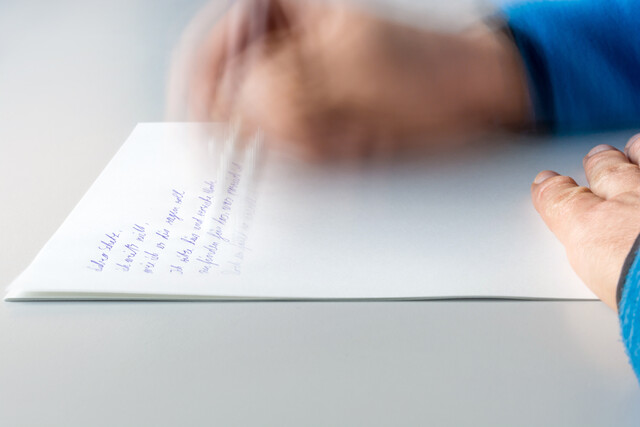|
Speedwriting Techniques for a Bigger Project � Reports � Thesis/Dissertation � Books � Research - Keywords |
Reports
For most people, the very first really big project you may be required to write is the "report".
It might be that first five-page report for American Literature class on the differences and similarities of Hemingway and Twain. It might be the 30-plus page report on the effects of yellow fever during the construction of the Panama Canal.
It doesn't matter what the report is, what matters is how you approach the project. You probably have an entire semester to write the report; very few instructors assign a research paper or report with little notice. It is usually assigned at the beginning of the semester or term, so you should take full advantage of this upfront notice.
As with all writing projects, start with your mind-mapping process, putting your central idea right there in the middle. Post it on a wall or bulletin board so that you see it on a regular basis. As you have ideas that pertain to the report, fill in the spokes of your mind-map.
In this manner, when you are ready to start your report or paper, a filled in mind-map will lead you directly into your outline and from there you blueprint your paper.
Remember, the outline places your ideas into a logical and ordered sequence.
The blueprint asks the questions your audience (instructor) will ask while reading your paper. Make sure you answer those questions with your material, anticipate any doubts or objects and answer those as well.
Top Secret Tip: When writing anything, save your introduction and conclusion for last. Until you have actually gotten the body of your material written, you don't always know what to introduce. Most of the time, people begin writing a paper or report with the introduction�and this makes a sort of sense because it comes first. Unfortunately, our writing may wander slightly (even with an outline and blueprint) and when your paper is read and reviewed, the introduction doesn't match the paper. This is when you will receive comments like:
- Wanders
- Does not stay on topic
- Misleading
- Arguments not well supported
After you have written the body of your paper or report, go back through, re-list the points that you actually did make, and use those to write your introduction.
Writing anything is similar to giving a speech:
- Tell them what you are going to talk about. (Introduction)
- Talk about each point, giving supporting evidence for each point. (Body of material)
- Remind them what you told them. (Conclusion)
When you write anything this way, your writing will be on target, it will go smoothly, quickly, easily, and will impress your reader/audience for being so concise and on topic.
Thesis/Dissertation
Of all the long writing projects you may write, your Master's Thesis or PhD. dissertation will be the most challenging. Here you will apply everything you have learned about Speedwriting so far, but with a longer project you have several unique challenges that we'll touch on:
- Advisory Committee
- Lack of Time
- Resistance
Working with Your Advisor: When writing an advanced paper such as a thesis or dissertation, you face challenges unlike any other you've faced before. Most important is the fact that you have to choose an advisor and work with an advisory committee to make sure your paper is on target, adequately covers your subject, and meets with the approval of your advisor and committee.
We have talked about your Internal Editor.Too many graduate students focus so much on the fact that their paper will be picked apart during the draft process that they can develop the most intense case of writer's block in their history.
You cannot edit a blank piece of paper.
Rather than being overwhelmed by the vast scope of your project, break it down just as you've learned to break other writing projects down. Use your mind-mapping, outlining, and then blueprinting techniques. In this way, you can work on any portion of your project as you feel motivated.
Working on larger projects is often more freeing than working on a smaller project because you can work in a non-linear fashion, working on portions that are especially compelling at a giving point, and then putting everything together based on the roadmap you've created with your outline and blueprint.
Most advisors really want you to be successful. They are there in an advisory capacity. Use them! Talk to your advisor. Discuss portions of your rough draft. Take ownership of your dissertation by using the process set in place to start your professional career with a dissertation that may be your guide post for the rest of your life's work. Work with your advisor as an ally. Stop seeing your advisor as an adversary. Above all, don't dump a rough draft of your dissertation on your advisor's desk at the very last possible moment. Submit portions on a regular basis. This is more respectful of your advisor's time, and will make the process easier on you.
Lack of Time: The most common reason people give for not working on their thesis or dissertation is that they don't have enough large blocks of time to write. They say things like, "I'll write during summer break," or "I'll write when the kids go back to school and it's quiet again," or "I don't know that I'll ever get this written because I simply do not have time to write."
"Lack of time" is the most common reason people give for not doing tasks that are either unpleasant or overwhelming.
Saying that you don't have time to write is merely an excuse. Everyone can find ten or fifteen minutes a day to begin a freewriting exercise on any sub-topic of your dissertation. It doesn't matter if what you write is unusable in its freewriting form. What matters is that you started writing, and once you begin, it is much easier to continue.
Rather than looking for big blocks of time to write, instead challenge yourself to identify small blocks of time, waiting for an appointment, riding the bus or train, having coffee. Instead of chatting with the person at the next table, write for ten or fifteen minutes.
Most people are absolutely astounded that some of their freewriting material reveals great insight, even flashes of genius that they didn't know existed inside themselves. When this happens, something almost miraculous occurs: You find that you are enjoying the process of writing your dissertation!
Resistance: Writing a dissertation could be a life-changing or life-altering experience. This may very well be the single most important document you ever create in your life. Your entire future may be directed by this dissertation with additional work and research that is guided by the very premise of your dissertation.
Nothing can be more daunting a task than one that is as important as writing your dissertation. With this comes resistance. You may avoid writing because you're sick, distracted, not done with your research, all of which are reasons why your writing might not be up to the level you believe is necessary for your dissertation.
Remember this, your first draft is exactly that, a draft. It is during the editing and revising process that your dissertation will take its final form. During this process you can change anything you want, you can fix any mistakes, repair any holes in your thesis.
Are you seeing a pattern here? Procrastinating about writing your dissertation stems from your fear that it will not be good enough. By not writing, no one can prove that it isn't good enough. However, by not writing, you will never reach your goal.
Books
As with writing a thesis or dissertation, writing a book can be an incredibly daunting task. Starting at Page One and envisioning yourself moving through the book to the end seems almost like a dream of nightmarish quality. Most of us have never written a book. We read them all the time, but when it comes to putting information down in a logical format for the duration that a book requires seems to need the skills of a professional organizer and project manager all rolled up into one.
No matter what the size of your writing project is, if you create a "road map" for your project, you will know where to start, where to go next, what gaps need to be filled in, and when you're done.
As human beings, having attainable goals is the key to being successful with a very large project. All your writing will be based on these tools. Without them, your writing project will drag on and on, or it will be relegated to the bottom drawer of your filing cabinet.
How can you Speedwrite a book? In the very same way you Speedwrite anything. You develop your ideas, create your outline/blueprint and begin. Use the freewriting exercises to help develop portions of the book where you are having trouble, where you feel stuck. By allowing your brain to "free fall" during these freewriting sessions, you will often discover a tidbit of information that you knew you knew, but couldn't recall.
Sometimes we try too hard. We think too much. We over analyze.
Writing a book is absolutely no different than writing any other project. It is just longer, contains more information, but the process is identical!
Research - Keywords
For those of you who are writing a thesis, dissertation, or a book, you may find that you need to do some research as you go.
Here are two suggestions to make this process easier and more productive:
- Research only when you have to. Try to write as much of your material as possible before you research. Research only when you have holes in your material. If you try to research the project in the interest of being totally complete, you're procrastinating again!
- Use keywords when taking notes. This speaks to the point of plagiarism. Too often, we think, "But this says exactly what I want to say!" No matter, taking someone else's words or thoughts is stealing. To prevent that from ever happening in your work, take notes in the form of keywords only! You'll find that when you take research notes in this manner, your material is 100% original and belongs entirely to you. (You still need to attribute unique ideas�that goes without saying�)



























